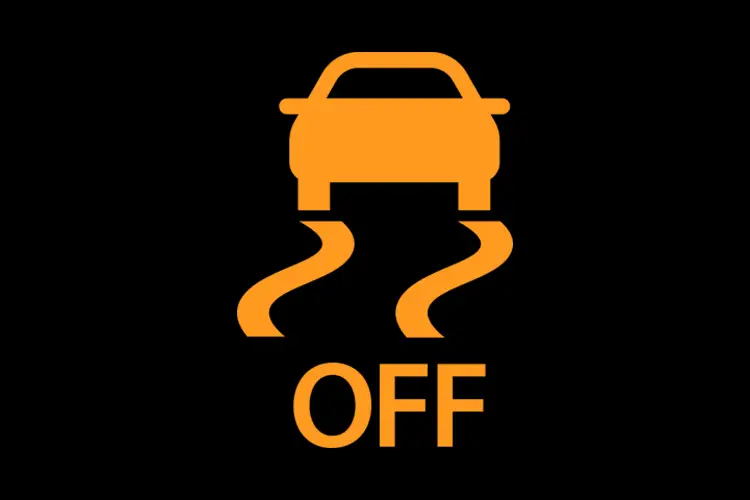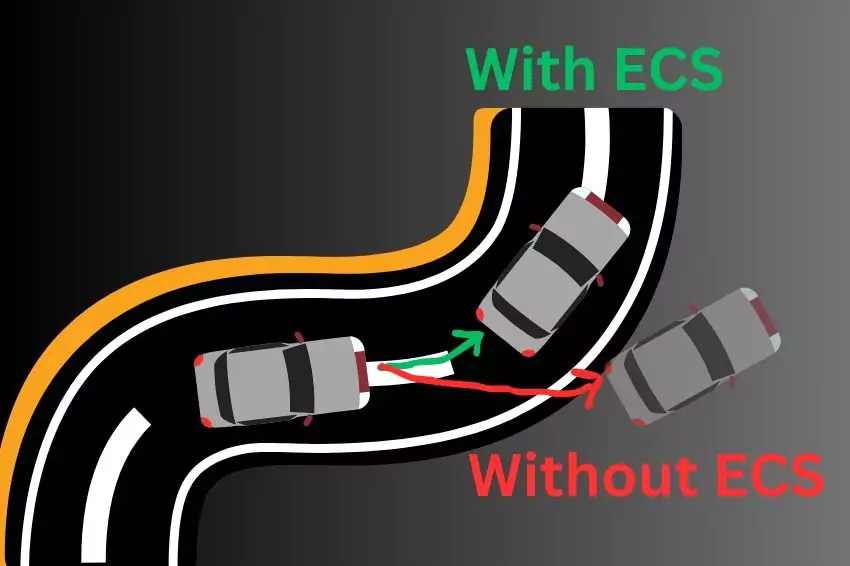Best Info About Is It Better To Drive With ESC On Or Off

ESC
1. Understanding ESC and Its Role
Electronic Stability Control (ESC) is like that super-responsible friend who always has your back, especially when things get a little dicey. It's designed to prevent skidding and loss of control by automatically applying brakes to individual wheels. Think of it as a silent guardian angel for your tires, helping you stay pointed in the right direction even when you're pushing the limits (or accidentally encounter a slick patch of road).
So, how does this wizardry actually work? Well, ESC uses sensors to constantly monitor your steering angle, wheel speed, and yaw rate (that's how quickly your car is rotating). If it detects a difference between where you intend to go and where the car is actually going, it jumps into action. It might gently brake one or more wheels to help steer you back on course. It's all happening in milliseconds, faster than you can even react, which is pretty darn impressive.
Now, before you start thinking "This thing is foolproof!", it's important to remember that ESC isn't a magical force field. It's a tool, and like any tool, it has its limitations. It can't defy the laws of physics, so if you're driving way too fast for the conditions, even ESC can't save you from yourself. But under normal driving conditions, and even in some emergency situations, it can be a lifesaver (literally!).
The importance of ESC cannot be overstated. Studies have shown that ESC significantly reduces the risk of single-vehicle crashes, especially on slippery surfaces. Many modern vehicles come standard with ESC, and it's a feature you definitely want to have on your side. Think of it as an extra layer of safety, like wearing a seatbelt — you hope you never need it, but you're sure glad it's there when you do.
When Turning ESC Off Might Make Sense (A Slippery Slope?)
2. Situations Where Disabling ESC Could Be Considered
Okay, so we've established that ESC is generally a good thing. But are there times when you might want to turn it off? Believe it or not, the answer is sometimes "yes," but it's crucial to understand the potential consequences. Think of it like removing the training wheels from your bike — you gain more control, but you also increase the risk of falling.
One situation where you might consider disabling ESC is when you're stuck in deep snow or mud. Sometimes, ESC can actually hinder your progress by cutting power to the wheels when it detects slippage. By turning it off, you might allow the wheels to spin freely and generate enough momentum to get unstuck. However, this requires a delicate touch and a good understanding of vehicle dynamics. If you're not careful, you could easily dig yourself in deeper or lose control of the vehicle entirely.
Another, though far less common, scenario is during certain types of motorsports, like drifting or rally racing. In these situations, drivers often intentionally induce wheelspin and sliding, which ESC would actively try to prevent. Turning it off allows for greater control over the car's movements, but it also places a much higher demand on the driver's skill and experience.
It's important to emphasize that these are very specific scenarios, and disabling ESC should only be done by experienced drivers who know what they're doing. For everyday driving on public roads, there's almost never a good reason to turn ESC off. Remember, it's designed to help you stay safe, and unless you're a professional stunt driver, you're almost always better off leaving it on.

The Potential Perils of Driving Without ESC
3. Risks and Dangers of Disabling Stability Control
Driving without ESC is like walking a tightrope without a safety net. Sure, you might be fine, but the consequences of a mistake can be pretty severe. Without ESC, you're much more susceptible to skidding and losing control, especially on slippery surfaces or during sudden maneuvers.
Imagine you're driving on a rainy day and suddenly need to swerve to avoid an obstacle. With ESC engaged, the system would likely kick in, applying brakes to individual wheels to help you maintain control and steer around the hazard. Without ESC, you're on your own. The wheels could lock up, leading to a skid, and you might end up spinning out of control. It's a scenario nobody wants to experience.
Even if you're an experienced driver, you can't react as quickly or precisely as ESC. The system is constantly monitoring the car's movements and can make adjustments in milliseconds. Human reaction time is much slower, and it's difficult to predict exactly how a car will behave in a skid. ESC is designed to compensate for these limitations, providing an extra layer of safety that you simply can't replicate on your own.
Furthermore, driving without ESC can increase your risk of being involved in an accident. Studies have shown that ESC significantly reduces the likelihood of single-vehicle crashes, especially those involving rollovers. So, unless you have a very specific reason to disable it, you're generally better off leaving it on and letting the system do its job.

ESC and the Law
4. Legal Considerations and ESC Mandates
In many countries, including the United States and Europe, ESC is a mandatory safety feature on all new vehicles. This reflects the overwhelming evidence that ESC significantly reduces the risk of accidents and saves lives. Governments recognize the importance of ESC and have taken steps to ensure that all drivers benefit from this technology.
Tampering with or disabling ESC could potentially have legal consequences. If you're involved in an accident and it's determined that you intentionally disabled a safety feature like ESC, you could be held liable for damages. This is because you've essentially increased the risk of an accident by removing a system designed to prevent them.
Even if it's not illegal to disable ESC in your specific location, doing so could still affect your insurance coverage. If your insurance company finds out that you disabled ESC and were involved in an accident as a result, they might deny your claim. Insurance companies typically have clauses that exclude coverage for accidents caused by intentional modifications that increase risk.
Beyond legal and insurance implications, disabling ESC could also void your vehicle's warranty. Many warranties stipulate that they are voided if the vehicle is modified in a way that affects its safety or performance. Disabling ESC could be considered such a modification, potentially leaving you on the hook for costly repairs.

The Verdict
5. Making the Informed Choice
Ultimately, the decision of whether to drive with ESC on or off comes down to a risk assessment. For the vast majority of drivers, in the vast majority of situations, the answer is a resounding "leave it on!" ESC is a proven safety technology that can help prevent accidents and save lives. It's like having an extra set of eyes and hands, ready to intervene when things get hairy.
Unless you're an experienced driver in a specific situation where disabling ESC might provide a benefit (like getting unstuck in deep snow or participating in certain types of motorsports), there's really no good reason to turn it off. The risks simply outweigh the potential rewards. You're putting yourself and others at greater risk of an accident, and you could potentially face legal or financial consequences as well.
Think of it this way: ESC is there to help you, not hinder you. It's a safety net that's designed to catch you when you make a mistake. Why would you want to remove that safety net? In most cases, it's simply not worth the risk.
So, the next time you're behind the wheel, remember to appreciate the unsung hero that is ESC. It's working silently in the background, ready to jump into action when you need it most. Leave it on, drive safely, and enjoy the ride!

What Does Service ESC Mean, Causes, Fix, And Reset For Chevy YouTube
